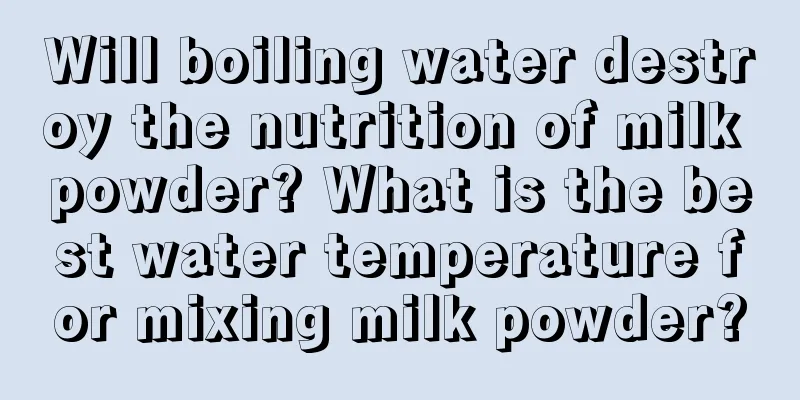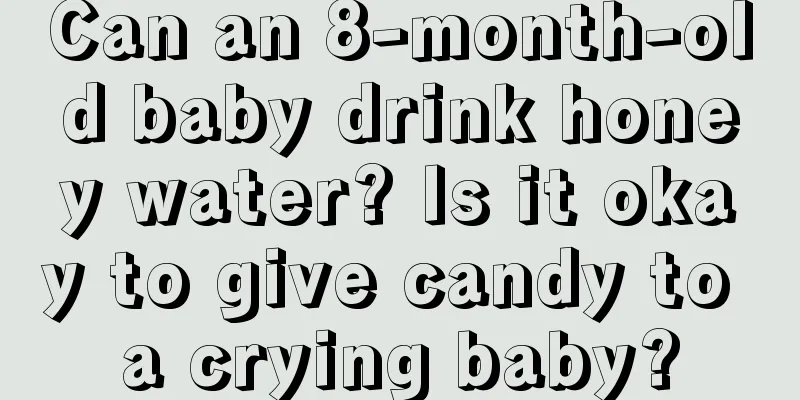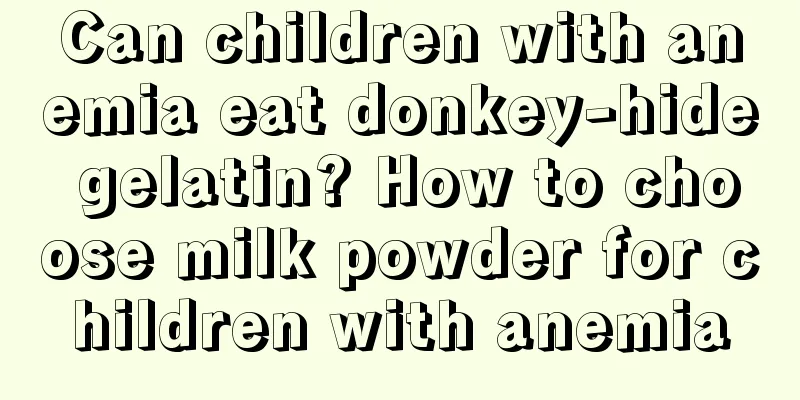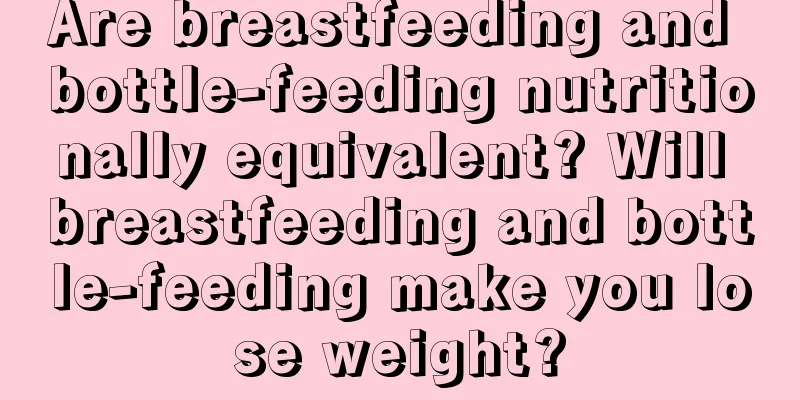Will boiling water destroy the nutrition of milk powder? What is the best water temperature for mixing milk powder?

|
Many careless parents will directly use boiled water to mix milk powder. Is there any problem with this? Here we will tell you the disadvantages of mixing milk powder with boiling water and how to avoid water sources that are not conducive to mixing milk powder. The consequences of mixing milk powder with boiling waterMix baby formula with boiling water From a daily perspective, milk powder, soy milk powder, juice powder and other products that adults drink are often prepared with boiling water, which can speed up the dissolution of the powder. Therefore, many new parents also subjectively believe that baby milk powder should also be prepared with boiling water. They even believe that high temperature can sterilize and ensure the health and safety of the baby. In fact, you must not use boiling water to make baby formula. Infant formula contains rich protein, fat, carbohydrates, vitamin A, vitamin D, calcium, iron and other trace elements. The high temperature of boiling water will cause the whey protein in the milk powder to clot, affecting the child's digestion and absorption. And those vitamins that are unstable to heat will also be destroyed, especially milk powder with added immune active substances, the activity of immune substances will also be destroyed. Will boiling water destroy the nutrition of milk powder?Mixing milk powder with boiling water will destroy the nutrition. The nutrients in milk powder are protein, lactose, calcium, probiotics, etc. Mixing milk powder with boiling water will directly cause irreversible denaturation of protein, that is, coagulation, and lactose will be caramelized and decomposed into lactic acid and formic acid. Calcium phosphate will directly complex and precipitate with the denatured protein, which will greatly reduce the color, aroma and taste of milk powder, and the reduction of nutritional value is the most obvious. The following water cannot be used to mix milk powderIn addition to mineral water and purified water being unsuitable for long-term use in making milk powder for babies, the following 4 types of water cannot be used to make milk powder: 1) Re-boiled water. Water that has been boiled repeatedly or repeatedly has a higher concentration of nitrates and nitrites, which is caused by evaporation and concentration of water. 2) Water that has been stored for a long time or has been refluxed. Water in a thermos bottle (pot) that has been stored for a long time (more than 12 to 24 hours), or water left in a boiling kettle, is easily contaminated by bacteria and the conversion of nitrates to nitrites increases. 3) Water treated by a household water softener. The principle of this type of equipment in removing calcium, magnesium and other ions from water is mostly to replace them with salt (sodium), so that there is too much sodium (salt) in the water, which is not good for the baby's kidneys. 4) Water filtered by household water filters. Because they cannot be cleaned and tested in time, the water filters are likely to contain a large number of bacteria, causing the water to be contaminated. |
>>: What should I do if my baby is anemic? What should I do if my baby stutters?
Recommend
How to diagnose mumps in children? What are the complications of mumps in children?
Children generally have weaker immunity, and are ...
Developmental indicators of 1-year-old babies Developmental standards of 1-year-old babies
When your baby turns one, it means that he will s...
How to treat malnutrition in one-year-old babies? How to prevent malnutrition in babies
The body of a one-year-old baby is still relative...
Can a newborn baby sleep on his stomach? Why does a newborn baby always spit bubbles from his mouth when sleeping?
Mothers should all have discovered that their bab...
How to care for cesarean section scars and postpartum scar repair methods
There are two most common ways for women to give ...
Can I eat Peach Blossom Princess during breastfeeding? Can I eat Peach Blossom Princess during breastfeeding?
Pregnant women cannot eat Peach Blossom Princess....
Can I eat fruit during the summer confinement period? Can I eat watermelon during the summer confinement period?
In addition to the high temperature, many people ...
What to do if your baby has ear eczema? What causes baby eczema?
I don't know why, but my baby's ears have...
What factors will affect a baby's walking? When is the peak period of a baby's intellectual development?
Some babies walk a little earlier, while others w...
What are the characteristics of a girl's breasts during pregnancy? What are the signs of a girl during the first three months of pregnancy?
With the development of the times, more and more ...
What causes hair loss during pregnancy? What to do during pregnancy
There are already a lot of things added to the pr...
What to do if your breasts become smaller after weaning? Breast care during the weaning period
After weaning, mothers' breasts will shrink b...
What kind of pillow core is good for children's pillows? Children's pillows should not be too hard
Choosing a good pillow for your baby also plays a...
What should I do if my baby doesn't want to take a bath? What should I do if my baby doesn't like to wash his hair?
Some babies show resistance when taking a bath, a...
What should I do if my baby likes to scribble at home?
Babies like to scribble on the walls everywhere, ...









